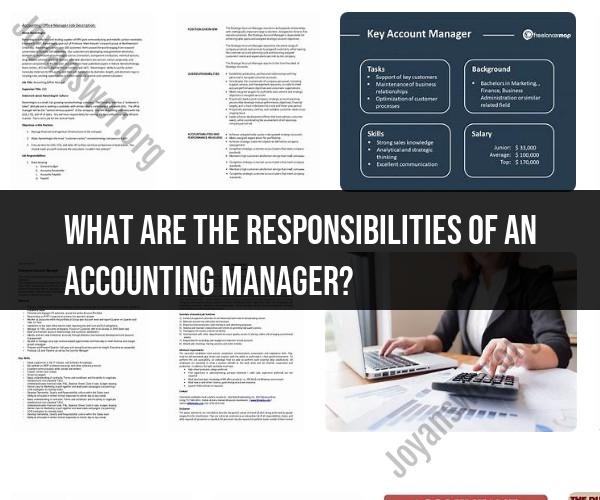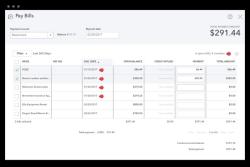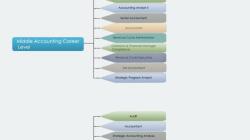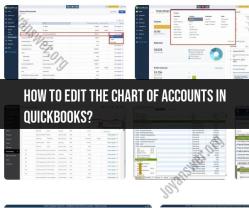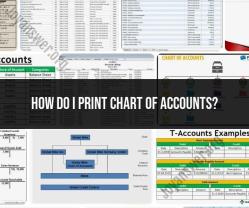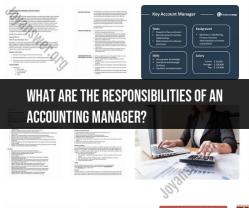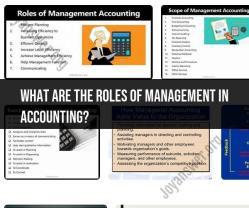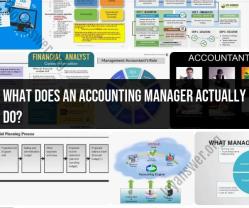What are the responsibilities of an accounting manager?
The responsibilities of an accounting manager can vary depending on the organization's size, industry, and specific needs. However, here is a comprehensive overview of the typical responsibilities associated with this role:
Financial Reporting: Accounting managers are responsible for overseeing the preparation of financial reports, such as income statements, balance sheets, and cash flow statements. They ensure that these reports are accurate and comply with relevant accounting standards and regulations.
Budgeting and Forecasting: They often play a key role in the budgeting process, working with other departments to create budgets, and monitoring actual financial performance against the budget.
Financial Analysis: Accounting managers analyze financial data to provide insights and recommendations to senior management. This includes identifying financial trends, cost-saving opportunities, and strategies for revenue growth.
Supervision: They manage and supervise the work of their accounting team, which may include accountants, bookkeepers, and clerical staff. They assign tasks, provide guidance, and ensure that work is completed accurately and on time.
Compliance and Regulation: Ensuring that the organization complies with all relevant financial regulations, tax laws, and accounting standards. This may involve working with auditors and tax authorities.
Internal Controls: Establishing and maintaining internal controls to protect the organization's assets and ensure the accuracy of financial data. This includes fraud prevention and detection.
Financial Software and Systems: Accounting managers work with financial software and systems to streamline accounting processes and improve efficiency. They may be responsible for implementing new software or upgrading existing systems.
Cash Management: They oversee cash management functions, which include managing cash flows, optimizing liquidity, and making decisions related to investments or borrowing.
Financial Planning: Involvement in long-term financial planning, which includes strategic financial decisions and forecasting for the organization's growth and stability.
Financial Audits: Coordinating and participating in financial audits, both internal and external. This involves providing auditors with necessary documentation and addressing audit findings.
Tax Compliance: Ensuring that the organization complies with all relevant tax laws and regulations. This may involve preparing and filing tax returns, as well as handling tax audits.
Risk Management: Identifying and managing financial risks that the organization may face, such as currency exchange risk, interest rate risk, and credit risk.
Communication: Accounting managers often communicate financial information to various stakeholders, including senior management, board members, investors, and employees. They must be able to explain complex financial concepts in a clear and understandable manner.
Training and Development: Providing training and professional development opportunities for their accounting team to ensure that staff members stay updated with industry best practices and regulations.
Vendor and Client Relations: Managing relationships with financial vendors, such as banks and audit firms, as well as with clients or customers who may have financial interactions with the organization.
Financial Strategy: Collaborating with senior management to develop and implement financial strategies and policies that align with the organization's goals and objectives.
The role of an accounting manager is critical in maintaining the financial health of an organization, ensuring compliance, and providing the necessary financial information and insights for decision-making at all levels of the organization. The specific duties and the level of responsibility can vary based on the organization's needs and the seniority of the role within the finance department.
What are the primary responsibilities of an accounting manager?
The primary responsibilities of an accounting manager include:
- Overseeing all financial operations and reporting
- Preparing and analyzing financial statements
- Managing budgets and forecasts
- Developing and implementing accounting policies and procedures
- Supervising and training accounting staff
- Ensuring compliance with all financial regulations
- Providing financial advice and support to management
How does the role of an accounting manager contribute to the financial health of an organization?
Accounting managers play a vital role in the financial health of an organization. They are responsible for ensuring that the organization's financial records are accurate and compliant with all applicable regulations. They also develop and manage budgets and forecasts, which help the organization to track its spending and ensure that it is staying on track financially. Additionally, accounting managers provide financial advice and support to management, which helps management to make informed decisions about the organization's finances.
Can you describe the day-to-day tasks and duties of an accounting manager?
The day-to-day tasks and duties of an accounting manager vary depending on the size and industry of the organization. However, some common tasks include:
- Reviewing and approving accounting transactions
- Preparing and analyzing financial statements
- Developing and managing budgets and forecasts
- Supervising and training accounting staff
- Meeting with auditors and other external stakeholders
- Providing financial advice and support to management
What is the reporting structure and collaboration of an accounting manager within a company?
Accounting managers typically report to the chief financial officer (CFO) of the organization. They also collaborate closely with other departments within the organization, such as sales, marketing, and operations.
How to assess the performance and effectiveness of an accounting manager?
The performance and effectiveness of an accounting manager can be assessed by considering a number of factors, including:
- The accuracy and timeliness of financial reporting
- The effectiveness of budget management
- The compliance of the organization with all applicable financial regulations
- The quality of financial advice provided to management
- The satisfaction of staff members and external stakeholders
In addition to these quantitative measures, it is also important to consider qualitative factors, such as the accounting manager's leadership skills, communication skills, and problem-solving skills.
Here are some additional tips for assessing the performance and effectiveness of an accounting manager:
- Review the accounting manager's annual performance review.
- Meet with the accounting manager regularly to discuss their progress and goals.
- Talk to other staff members and external stakeholders to get their feedback on the accounting manager's performance.
- Compare the organization's financial performance to that of similar organizations.
By considering all of these factors, you can get a well-rounded assessment of the accounting manager's performance and effectiveness.
